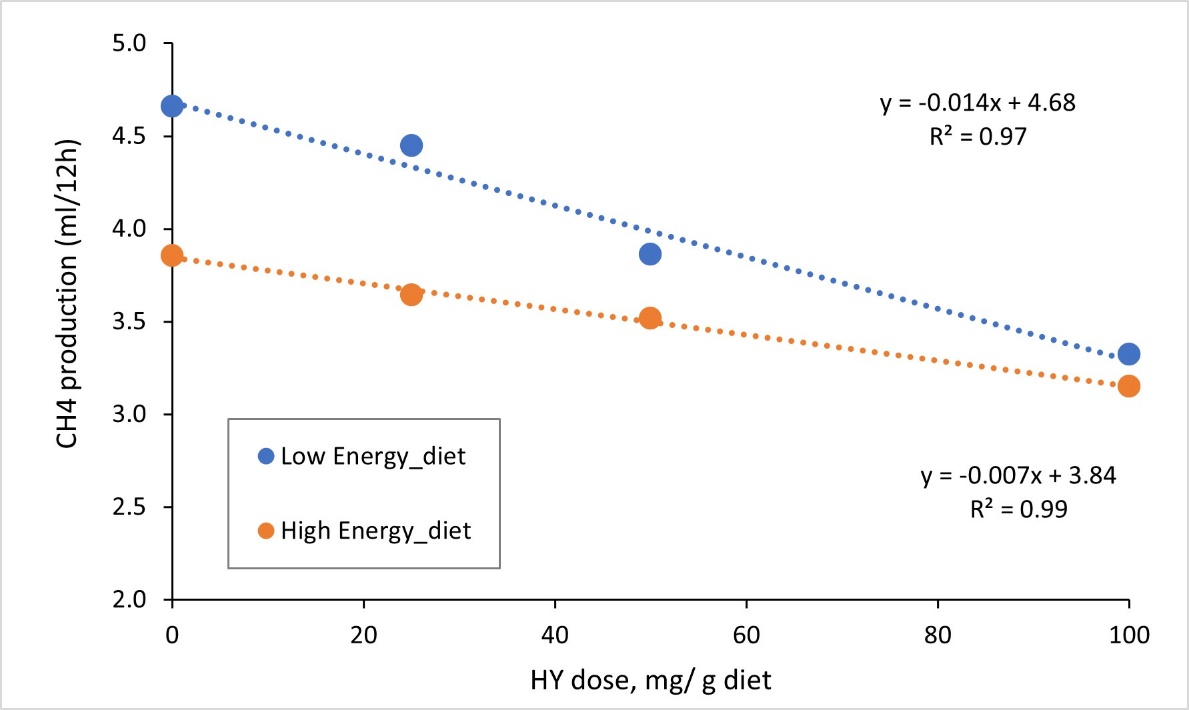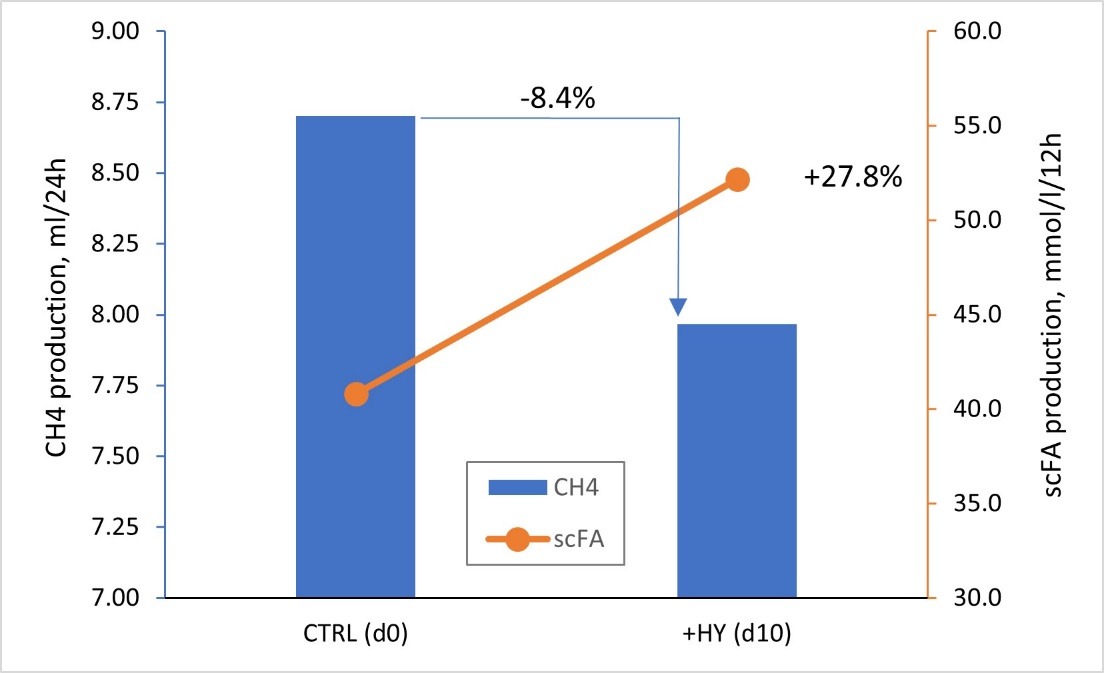In 2021, methane (CH4), as by-product of the enteric (microbial) fermentation of carbohydrates in the rumen of farm animals, contributed to 45% of total CH4 emission in the EU, equivalent to 5.2% of total EU GHG emissions (EuroStats, EEA, env_air_gge, 2023). Due to its short atmospheric lifespan of 12 years (EPA, 2022), mitigating CH4 emissions represents the most promising means to reduce global warming in the short term.
Fortunately, the rumen physiology/ fermentation dynamics is such that diets can be altered and additives do exist which have demonstrated methane mitigation properties. However, consistency, practicality of these strategies across a wide variety of production systems and their cost effectiveness are of equal importance when considering market acceptance. The in vitro (ex vivo) rumen simulation offers a rapid and cost-effective tool to investigate the effects of feed supplements on rumen fermentation dynamics, whilst confidently correlating the results to ruminant performance parameters.
To investigate the effect of Livalta™Cell HY40 (HY) on rumen fermentation and enteric CH4 production we conducted in vitro rumen fermentation studies with different set ups. In the first experiment, increasing levels of HY (0, 25, 50 and 100mg/g) were added to the fermentation substrate (= diets) of low (LE) and high energy (HE) content while using rumen fluids of cows, fed a yeast-free diet, as inoculum.

Figure 1. Effect of dietary inclusion of LivaltaTMCell HY40 on enteric CH4 production (ml/12h) measured by an in vitro rumen fermentation model.
The diets had a significant effect on in vitro CH4 production after 12h, with the LE diet producing more CH4 than the HE diet. Additionally, supplementation of HY linearly decreased CH4 production for each diet by up to 25% at the highest HY inclusion level.
Furthermore, the inclusion of HY increased microbial activity, resulting in a ~ 6% increase in short-chain fatty acid production after 12h, regardless of diet type.
The second study aimed to evaluate the impact of prolonged feeding of HY on rumen microbial activity. We used rumen fluid collected from 10 cows before (CTRL) and after 10 days of feeding HY (+HY) as part of a total mixed ration (TMR) at 15g/ head/ day. The in vitro rumen fermentation dynamics and CH4 production were assessed using a non-yeast supplemented diet (substrate).

Figure 2. Effect of prolonged feeding of Livalta™Cell HY40 on enteric CH4 production (ml/24h) and scFA production (mmol/12h) measured by an in vitro rumen fermentation model.
Feeding cows HY for 10 days reduced in vitro 24h CH4 production by 8.4% while increasing scFA production by 27.8%, demonstrating a substantial HY effect on rumen microbial activity.
Overall, it can be concluded that Livalta™Cell HY40 can influence rumen microbial activity / fermentation dynamics leading to reduced enteric CH4 emissions and intensity (g CH4/ kg animal product).
Please contact us to find out how Livalta can help you responsibly meet your animals needs
Latest news
Livalta develops new, responsible proteins for feed and food using the latest science and technology.!

